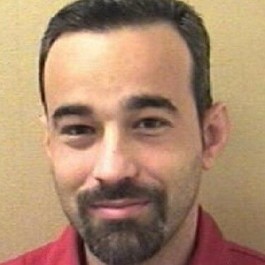
1969 - 2006
Samuel Russell Flippen
Summary
Name:
Years Active:
1994Birth:
September 30, 1969Status:
ExecutedClass:
MurdererVictims:
1Method:
BeatingDeath:
August 18, 2006Nationality:
USA
1969 - 2006
Samuel Russell Flippen
Summary: Murderer
Name:
Samuel Russell FlippenStatus:
ExecutedVictims:
1Method:
BeatingNationality:
USABirth:
September 30, 1969Death:
August 18, 2006Years Active:
1994Date Convicted:
March 7, 1995bio
Samuel Russell Flippen was born on September 30, 1969, in the United States. Prior to his arrest and conviction, he had no known criminal record, no history of violence with law enforcement, and was generally described by those close to him as a kind and nonviolent person. Flippen’s life took a dramatic turn in the early 1990s when he married Tina Gibson, a woman with a young daughter named Britnie Nichole Hutton from a previous relationship.
murder story
On the morning of February 12, 1994, Tina Gibson left her daughter, 2-year-old Britnie Nichole Hutton, in the care of her husband, Samuel Flippen, while she went to work in Forsyth County, North Carolina. About an hour later, Flippen called 911, reporting that Britnie had fallen from her high chair and was having trouble breathing. When emergency responders arrived, they found the child pale and gasping for air. She was rushed to North Carolina Baptist Hospital, where she was pronounced dead less than an hour later.
An autopsy revealed Britnie had sustained severe internal injuries, including trauma to the liver and pancreas — injuries the pathologist said could not have come from a simple fall. The cause of death was determined to be internal bleeding from blunt force trauma to the abdomen. This led authorities to suspect abuse. Flippen maintained that Britnie had accidentally fallen, and he had called 911 immediately after discovering her struggling to breathe.
Flippen was charged with first-degree murder. The prosecution argued that he beat Britnie to death in a moment of rage after she wouldn’t stop crying. Offered a plea deal for second-degree murder that would have spared him the death penalty, Flippen refused — insisting he was innocent.
On March 7, 1995, he was convicted of Britnie’s murder based solely on circumstantial evidence. In 1997, the North Carolina Supreme Court overturned his original death sentence due to the jury’s failure to consider his clean criminal record. A second jury was convened and, after more than six hours of deliberation, re-imposed the death sentence. He was officially re-sentenced to death on May 23, 1997.
During the trial, no direct forensic evidence tied Flippen to the fatal injury, and he consistently maintained his innocence. Friends and relatives testified to his good character, while his wife, Tina Gibson, claimed he had been violent — even though she had left her daughter in his care that morning. Years later, Flippen’s defense team received a statement from a woman who had cared for Gibson’s son in 1999, alleging that the boy had suffered visible bruises from a severe beating — a detail never explored in court.
On August 18, 2006, Samuel Flippen was executed by lethal injection at Central Prison in Raleigh, North Carolina. He ate a last meal of popcorn shrimp, hush puppies, French fries, and a Coke. He gave no final statement. His execution was met with protest, including from Britnie’s biological father, John Hutton, who had opposed the death penalty in the case.
Since his execution, doubts about Flippen’s guilt have continued to grow. In 2021, John Hutton filed a motion to gain access to the Winston-Salem Police Department’s case files, citing new allegations that Tina Gibson may have abused another child. As of 2024, Flippen remains the most recent person executed in North Carolina, which has not carried out any further executions for over 18 years, leading to a de facto moratorium in the state.
On the 17th anniversary of Flippen’s death, supporters gathered at Pullen Memorial Baptist Church in Raleigh to honor his memory and continue calls for further investigation. His case remains a haunting example for many who believe that the justice system may have executed an innocent man.